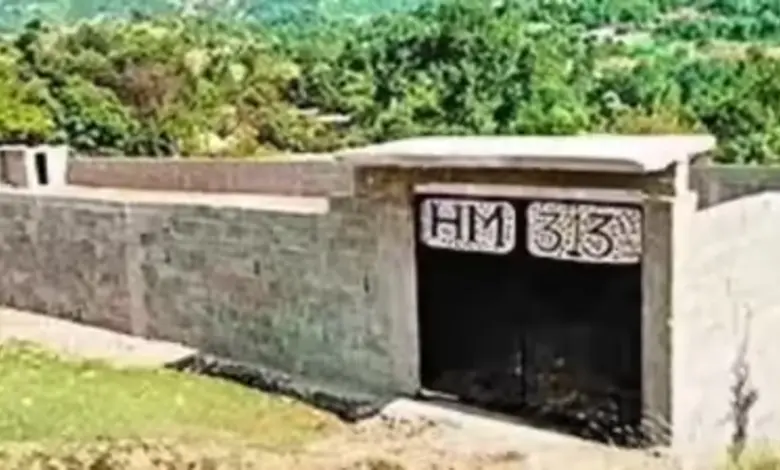In the aftermath of Operation Sindoor, which dismantled nine key terror facilities within Pakistan, prominent groups backed by Islamabad such as Jaish-e-Mohammed and Hizbul Mujahideen have begun relocating their operations deeper into the country, nearer the Afghan border, according to intelligence reports.
Visual evidence gathered by Indian security agencies confirms that these organizations are establishing new strongholds in Khyber Pakhtunkhwa Province (KPK). Jaish-e-Mohammed, in particular, has ramped up development at its Markaz Shohada-e-Islam training center in Mansehra, within the Khyber region. Recent images reveal ongoing building work and heightened supply movements to the location, signaling an expansion effort.
Meanwhile, Hizbul Mujahideen, led by former Special Services Group operative Khalid Khan, is erecting a fresh training camp dubbed “HM-313” in the Bandai area of KPK. The property was acquired in August 2024, with groundwork commencing in mid-May this year. Photos indicate that perimeter fencing and basic training setups are already in place. The designation “313” pays homage to the Battle of Badr in Islamic history and al-Qaida’s Brigade 313, underscoring Hizbul’s aim to draw broader jihadist endorsement on the world stage.
As part of this repositioning, Jaish-e-Mohammed has scheduled a recruitment event for September 25 in Peshawar’s Markaz Shaheed Maksudabad. The gathering honors Yusuf Azhar—brother of Jaish leader Masood Azhar, who perished during Operation Sindoor—and will unveil a new moniker for the group: al-Murabitun, echoing an al-Qaida affiliate in West Africa that means “defenders of the Islamic land.”
This strategic shift stems from the groups’ recognition of their longstanding bases as easy targets for Indian airstrikes, prompting a retreat to KPK’s rugged terrain. The province provides strategic advantages, including distance from prior hotspots, closeness to the Afghan boundary, and entrenched militant networks from the Soviet-Afghan conflict era, as detailed in an intelligence assessment. Such relocations occur with explicit support from Pakistani authorities, including police-escorted Jaish assemblies and collaboration with entities like Jamiat Ulema-e-Islam (JUI).
KPK is evolving into a backend hub for Jaish-e-Mohammed’s command, while Pakistan-occupied Kashmir remains the primary launchpad for cross-border incursions. Agencies have spotlighted a Jaish-orchestrated rally in Garhi Habibullah, Mansehra, which unfolded just hours ahead of the India-Pakistan cricket clash on September 14. Disguised as a Deobandi religious assembly, it doubled as a joint JeM-JUI mobilization drive, featuring Mulana Mufti Masood Ilyas Kashmiri—JeM’s KPK and Kashmir head, also known as Abu Mohammad. Protected by JeM militants wielding M4 rifles and local officers, including Inspector Liaqat Shah from Garhi Habibullah station, the event saw Kashmiri spend more than half an hour extolling Osama bin Laden as the “Shohada-e-Islam” and “Prince of Arab,” forging explicit ties between JeM’s doctrine and al-Qaida’s heritage. An intelligence source described this overt display as emblematic of state-level collusion and the militants’ aggressive resurgence.
